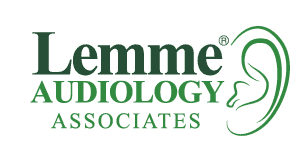Over the Counter (OTC) solutions for hearing loss have been available for purchase for many many years. We are sure you have seen these types of “hearing aids” at the pharmacy or on websites already, but now the FDA has regulated them. With the involvement of the FDA, OTC solutions for hearing loss have now become a safer option for consumers.
Regulated Over the Counter Hearing Aids are expected to be available in October 2022. These devices will be available for any adult to purchase without the involvement, guidance, or recommendation of a licensed professional or medical professional such as an Audiologist. The good news is that for those who do not need a prescription hearing loss solution, there will now be a safe and effective category of devices available to be purchased and used!
So, who should buy an OTC hearing aid?
In general, an OTC hearing aid would be best for someone who needs a little bit of extra volume from time to time. These people would be able to self-diagnose themselves with the correct level of hearing loss they have, be able to correctly choose which OTC device would be most appropriate, be able to accurately select the correct components needed for a proper self-fit, and also be able to maintain the devices in proper working order as well as maintain any software updates.
How much will OTC hearing aids cost?
Just like prescription hearing aids, the cost of OTC hearing aids will vary. We are expecting them to be anywhere between several hundred dollars to a few thousand dollars. Just like with prescription hearing aids, there will be different technology levels and features that affect the price.
Device Specs, Outputs and Performance of OTC hearing aids:
Frequency Range
OTC Hearing Aids: 250 – 5,000 Hz
Prescription Hearing Aids: 250 – 8,000 Hz
Latency (Delay)
The higher the milliseconds, the longer it takes to process a sound and deliver it to the ear
OTC Hearing Aids: Cannot exceed 15 milliseconds
Prescription Hearing Aids: Less than 1 millisecond
Circuit Noise (Internal Noise)
The higher the dB, the noisier the hearing aid will be
OTC Hearing Aids: Cannot exceed 32 dB
Prescription Hearing Aids: Around 16 dB
Distortion
The higher the percentage, the more different voices and sounds will be heard
OTC Hearing Aids: Cannot exceed 5%
Prescription Hearing Aids: less than 1%
Will I still have to see a professional if I purchase OTC hearing aids?
Yes, you still need to see an audiologist if you:
- Have trouble understanding speech while in background noise
- Have poor speech understanding
- Are taking ototoxic medication regularly (aspirin, pain medication, antibiotics, diuretics….)
- Are undergoing chemotherapy or radiation
- Are exposed to noises of 80dB or above for long periods of time
- Have ringing or other noises in their ears
- Are over the age of 55
- Are turning the TV up more and more
- Have difficulty with your balance or have a history of falls
- Already have a diagnosed/verified hearing loss
- Have a sudden hearing loss
- Have any of the following comorbidities of hearing loss
- Diabetes
- Cardiovascular Disease
- Current or Former Smoker
- Kidney Disease
- Dementia / Alzheimer’s
- Thyroid Disease
Lemme Audiology is always available to help guide you onto the path of healthy hearing. Just call (814) 941-7770 to schedule your hearing evaluation with one of our Audiologists in our Altoona, Ebensburg, or Martinsburg offices.

